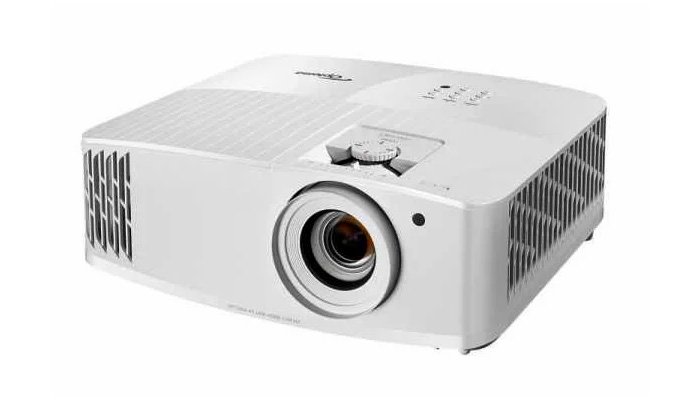In the case of multimedia projectors, one size isn’t the best for every. When setting up the ideal home theatre, preparing an important business presentation or preparing for an outdoor movie evening, picking the appropriate projector will enhance the experience if you make the right choice. Let’s look through the array of projectors to find the one that meets your requirements perfectly.
What Exactly is a Multimedia Projector?
Let’s begin by defining the basics. A multimedia projector is a gadget that projects videos, images, and presentations onto a bigger display, mostly for entertainment, business, or educational reasons. Consider it the link connecting your media and the viewers, whether it’s an entire room of your friends or family gathered around the television. However, don’t get fooled by the fact that various options make projectors stand out. We’ll look into them shortly.
Types of Multimedia Projectors: Which One Is Right for You?
Many types of projectors are available, all designed to satisfy certain requirements. Let’s take a look at the following:
- DLP (Digital Light Processing)
- Perfect for rooms with bright lighting, DLP projectors are known for their clear and sharp images and bright brightness. They are ideal for business meetings or presentations, as well as gaming. They provide vivid, realistic colours.
- LCD (Liquid Crystal Display)
- They tend to create brighter colours and sharper images, making them ideal for home theatres and classrooms. You can expect rich colours and clear images.
- LED Projectors
- Small, effective, durable, and long-lasting LED projectors utilize LED light sources to provide illumination. They’re energy efficient and can produce sharp, clear images without burning out bulbs too fast. They’re great for casual and semi-professional use.
- LCoS (Liquid Crystal on Silicon)
- Premium projectors that offer outstanding colour accuracy and superb image quality. These are the ideal options for those setting up a top home theatre system.
Choosing the Right Projector: The Key Features to Consider
Before you decide, it’s important to consider the crucial aspects. This is a brief overview of the factors to remember:
- Visual Quality: Where Clarity Meets Color
- Resolution For clear images, resolution is crucial. For normal home use, 1080p (Full HD) will suffice. For the best viewing experience, think about a projector with 4K resolution that offers unbeatable clarity for movie enthusiasts and gamers.
- Brightness (Measured in Lumens):
- The brightness determines how clear your images appear. The more lumens, the better the projector’s performance in dimly lit conditions. For home theatres and dark areas, 1500 to 2500 lumens might suffice. However, you should opt for 3000 lumens or higher for bright areas and outdoor applications.
- Contrast Ratio The whole thing is about vibrancy and depth. The greater the contrast ratio, the more detailed your photo will appear. Think deep blacks and vivid hues.
- Sound: Bringing Your Picture to Life
Built-in speakers are included in many projectors. However, to get the most immersive experience, you may need to invest in external audio equipment. A well-designed sound system can transform your presentation or movie into an immersive experience. Certain projectors have adequate speakers for smaller configurations if you’re looking for portability.
- Size and Portability: Flexibility Meets Function
What’s the layout of your home? A bigger, stationary projector is the best option if you plan to build a permanent or theatre in-home theatre. But, if you require something portable for conferences and outdoor events or occasions at home, think about an ultra-compact or mini projector that is light and portable.
- Connectivity: The Modern-Day Necessity
The days of cables were your only choice. Today, many projectors have wireless connectivity, allowing users to stream directly from mobile devices like tablets, smartphones, and laptops. Ensure that your projector is equipped with the correct ports for all your devices, including HDMI, USB, and VGA connections. Many models even have integrated streaming apps that eliminate the need for external devices.
Projector Specifications: The Nitty-Gritty Details You Need to Know
Let’s look into a few important specifications that will assist you in choosing the ideal projector.
- Lumens: The Brightness Factor
Lumens refers to the amount of light your projector produces. The more lumens you have, the brighter the image. For brighter spaces, outdoor environments, or professional spaces, A projector with an impressive lumen count (3000plus lumens) will guarantee that your content is evident, even in daylight.
- Throw Ratio: Adjusting to Your Space
A throw ratio will be important in determining how far you’ll have to distance the projector from the screen. If you’re in a smaller space, the short-throw projector can provide clear, large images even from one or two feet away. For larger rooms, an ordinary throw projector may be the best choice for your needs.
- Aspect Ratio: It’s All About Proportions
The aspect ratio is the determining factor in the projected image design. The most popular aspect ratio used in modern media is 16:9, perfect for TV and movies. It may be more suitable for a rectangular image if you plan to utilize your projector to present 4:3.
- Lamp Life: Longevity Matters
The lamps used in traditional projectors will get worn out, taking into consideration the lamp’s lifetime. Some projectors last up to 5000 hours, whereas the latest models using LED and laser technologies may last longer, up to 20.000 hours. This will reduce the expense of having to replace lamps regularly.
Matching Your Projector to Your Needs: Tailoring It for Your Purpose
So, which one is the best one to choose? It’s all about what you want to do with it. Here are some suggestions for you:
Home Entertainment
To get the most immersive gaming and movie experience, select an LCD projector with at least 300 lumens, 1080p resolution and high contrast. Make sure to consider the sound quality! Look into projectors like those from the Epson Home Cinema or BenQ TK850 to get unbeatable image quality.
Business and Professional Use
For corporate environments, where you’ll be making presentations or showing elaborate slideshows, a projector with large contrast (3000-5000 lumens) and various input options is crucial. Look into models such as the ViewSonic PA503W and Epson EX3260.
Outdoor Use
If you plan to use your projector outdoors, it will require a model with bright intensity (3000 or more lumens) capable of handling varying lighting conditions. The Optoma HD143X is an excellent choice for outdoor movie nights, offering flexibility and brightness.
Educational Settings
Short-throw projectors are great in classrooms as they reduce shadows and project large images within small spaces. Look for models with wireless capabilities, like those from BenQ MW535.
Popular Projector Brands to Consider
Regarding projectors, certain brands are renowned for their top quality. Here are a few of the most trusted ones:
- Epson is a brand known for its top-quality projectors with amazing luminosity and reliability.
- BenQ offers outstanding image quality and excellent projectors to play with and for home theatres.
- ViewSonic is a brand known for its low-cost, high-performance and budget-friendly options.
- Optoma offers fantastic projectors for outdoor and indoor use, particularly in professional settings.
How Much Should You Spend? Navigating the Budget
The cost of projectors varies based on the specifications. There are affordable mini projectors that cost between $100 and $500, while high-end home theatre projectors range between $1000 and $ 3000. Your budget will be determined by the frequency you intend to utilize the projector and the quality of images you need.
Installing and Setting Up Your Projector
Installing your projector does not have to be difficult. Whether you’re mounting it on the floor or applying a tripod that you can carry around, installing it is fairly easy. You must determine the distance of the throw and adjust the image’s size according to your needs for the best outcomes.
Troubleshooting Common Issues
Even the most powerful projectors may run into issues. Here’s how you can solve a few of the most common issues:
- Overheating: Make sure that the vents are free of obstruction and that the projector is placed in a well-ventilated area.
- Images or Color problems: Adjust the settings to adjust contrast and brightness or return to the factory settings.
- Connection Problems: Check your cables and firmware, update them or test an alternative connection method.
Conclusion: The Best Projector for You Awaits!
Selecting a multimedia projection device is about determining the ideal balance of quality features, budget, and price. If you’re building an entertainment space in your home, setting up an event for business, or planning an outdoor gathering, The right projector can enhance your experience to new levels.
FAQs
1. How can I find the best resolution for my requirements?
If you’re using the projector for leisurely watching, then 1080p is great. To get the best home theatre, go to a 4K projector.
2. Does a projector perform well in a well-lit room?
You’re right. However, you’ll require an LCD projector with a greater lumen count (3000 or more lumens) to ensure the image remains clear.
3. How do I expect my projector to last?
Projectors with laser or LED lamps can last 10,000 to 20000 hours. The traditional bulb-based projector will last for around 5000 hours.
4. Do I require wireless connectivity?
Wireless connectivity is convenient but unnecessary unless you’re streaming or need more flexibility in connection with your device.
5. What is the difference between LED and DLP projectors?
LED projectors have longer life spans and are energy efficient; DLP projectors perform well in bright lighting and are great for high-speed images such as gaming.



0 Comments on “The Ultimate Guide to Choosing the Perfect Multimedia Projector”